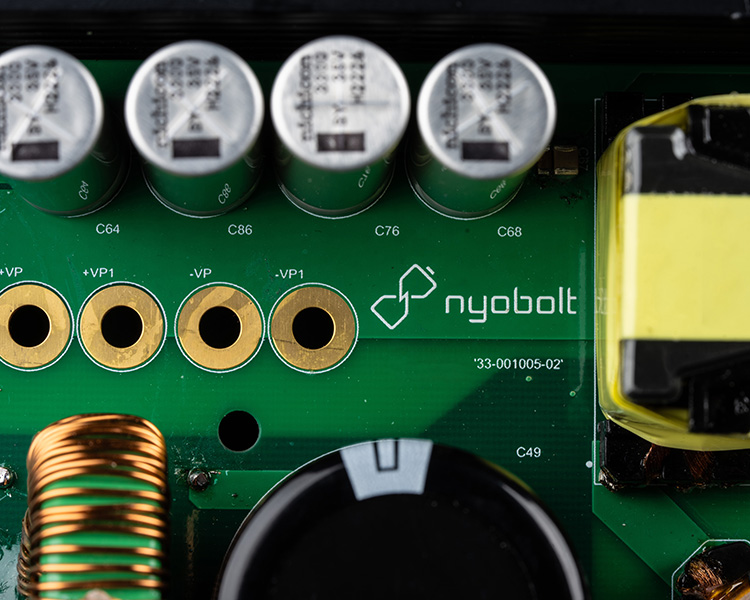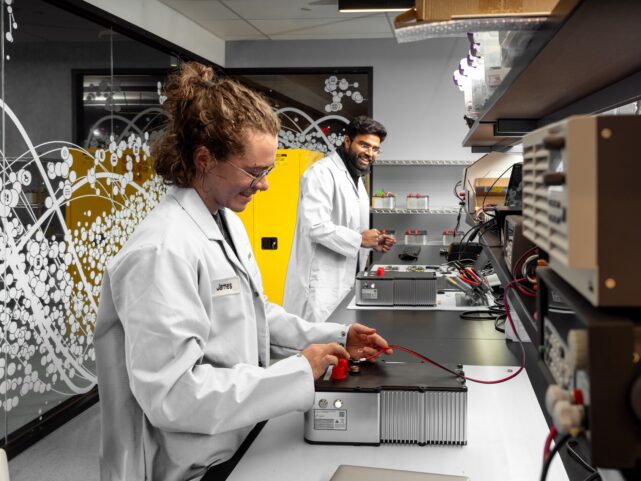
Sustainability
Nyobolt seeks to set a higher standard in manufacturing with environmental and social considerations in each step of our processes
Our mission is to accelerate progress in high-power industries by producing sustainable batteries that positively contribute to the low carbon energy transition, our customers, and local communities

Exceptional lifespan
The extended life of our batteries directly contributes to a more positive and reliable customer experience, reducing the need for constant replacement of batteries, allowing efficient use of resources and contributing to the low carbon energy transition in different markets
Compact & lightweight design
The high-power density of our batteries allow for smaller size and reduced weight systems in power-hungry applications, decreasing the demand for raw materials, thereby lowering CO2 emissions from mining and refining processes
Circularity and recyclability
Our patented anode material has a high level of recovery and reuse from different sources of production waste
Sustainable Development Goals (SDG)

Ensure access to affordable, reliable, sustainable and modern energy for all
Nyobolt’s actions:
- Produce cells and batteries which enable electrification of key sectors.
- Produce energy solutions which provide resilience and stability

Ensure sustainable consumption and production patterns
Nyobolt’s actions:
- Minimise GHG emissions through the electrification of challenging sectors
- Engage with suppliers that comply with due diligence policies

Take urgent action to combat climate change and its impacts
Nyobolt’s actions:
- Innovation with cells and batteries that enable more efficient use critical minerals and reduce CO2 emissions
- Produce products with an exceptional long life
Our suppliers’ code of conduct is based on the OECD Guidelines for Multinational Enterprises, the UN Guiding Principles on Business and Human Rights and the OECD Due Diligence Guidance for Responsible Supply Chains of Minerals from Conflict-Affected and High-Risk Areas.
Suppliers are assessed in accordance with our Due Diligence Management System and our ESG strategy. We have an ISO 9001 certified Quality Management System (QMS) for manufacture of Battery Cells
We are committed to reducing the carbon footprint of our products with continuous improvement on novel materials and manufacturing processes.
Nyobolt’s batteries support the reduction of CO2 emissions in customer applications. Third party analysis has shown that over its lifetime, Nyobolt’s battery in heavy duty applications (Hybrid mining trucks) reduces diesel use and fossil-related CO2 emissions
Nyobolt aims to ensure products consistently meet customer requirements and industry standards. We have an ISO 9001 certified Quality Management System (QMS) of Manufacture of Battery Cells
Nyobolt seeks to incorporate recycled materials into our products and is developing and scaling the processes to recover and recycle our proprietary anode materials
Designing products for longevity and recyclability ensures that they have a reduced environmental impact throughout the lifecycle of our batteries. Nyobolt’s end of life policy seeks to understand the needs of clients and work with them for collecting, recycling and disposing our batteries
Social
Nyobolt seeks to provide continuous learning opportunities through a blended learning approach to support employee growth and career advancement.
Nyobolt has an inclusive culture through equitable hiring practices, targeted DEI initiatives, and regular engagement sessions to act on employee feedback.
High Safety Standards for employees: Nyobolt fosters a safe, healthy, and responsible workplace while ensuring leadership involvement and accountability

Governance
Nyobolt’s policy on accountability and transparency incorporates key elements of reporting frameworks, such as the Global Reporting Initiative (GRI), Task Force on Climate-related Financial Disclosures (TCFD), Sustainability Accounting Standards Board (SASB)

Transforming high-power industries
Talk to an expertTalk to an expert
Fill in your details and we will be in touch